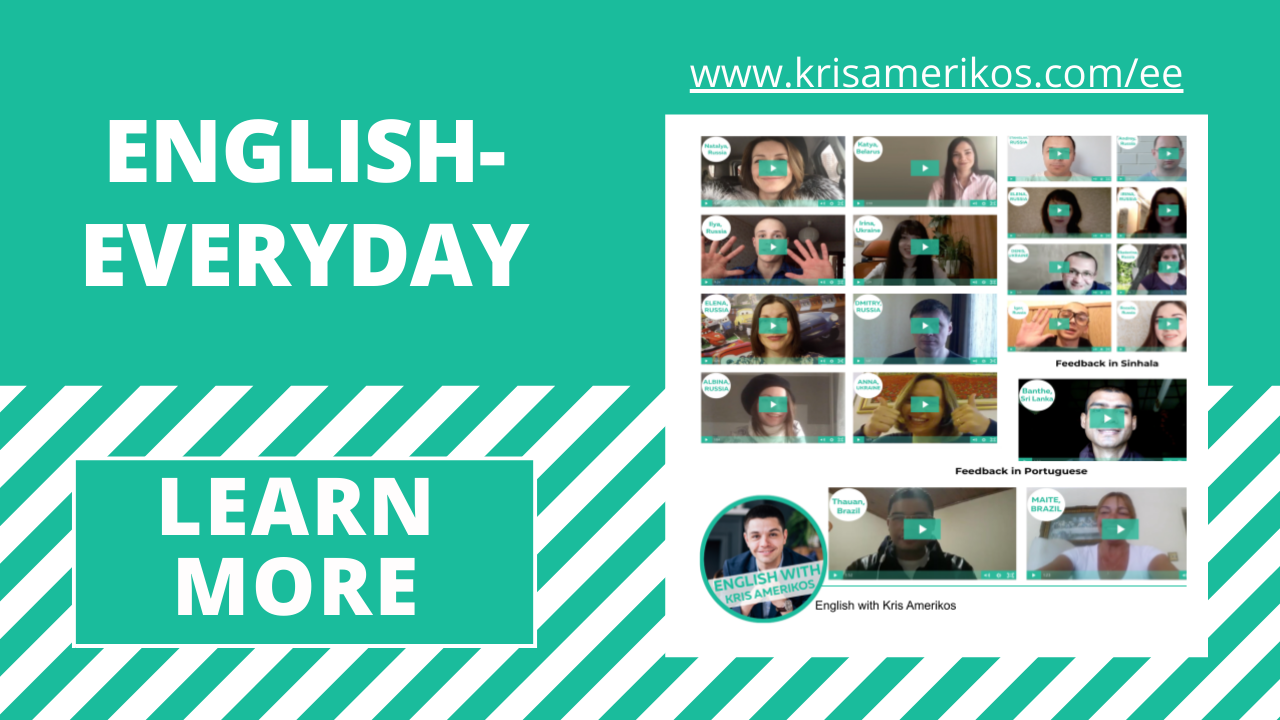Neologisms in The English Language - Wanna, Gonna, Gotta
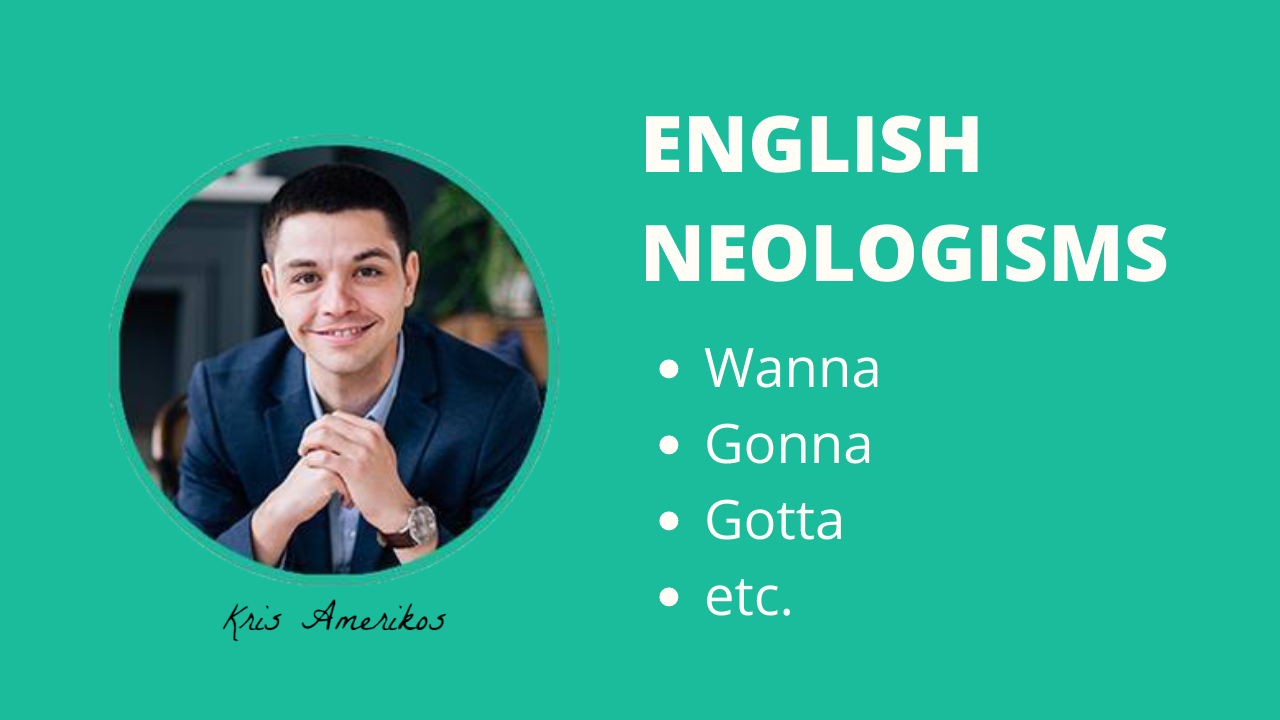
The English language is always reinventing itself. It has changed a lot from Shakespearean days and it’s still evolving today. New ideas, new concepts, and new terminology need to be explained, so the English language invents, or re-invents, language to explain them.
What Are Neologisms in The English Language?
Neologisms are words that are created to explain new ideas. Neologisms are formed by borrowing words or mixing existing words to talk about new concepts. They can be made of words in English, words from other languages, or by adding a prefix or suffix that best suits the new concept.
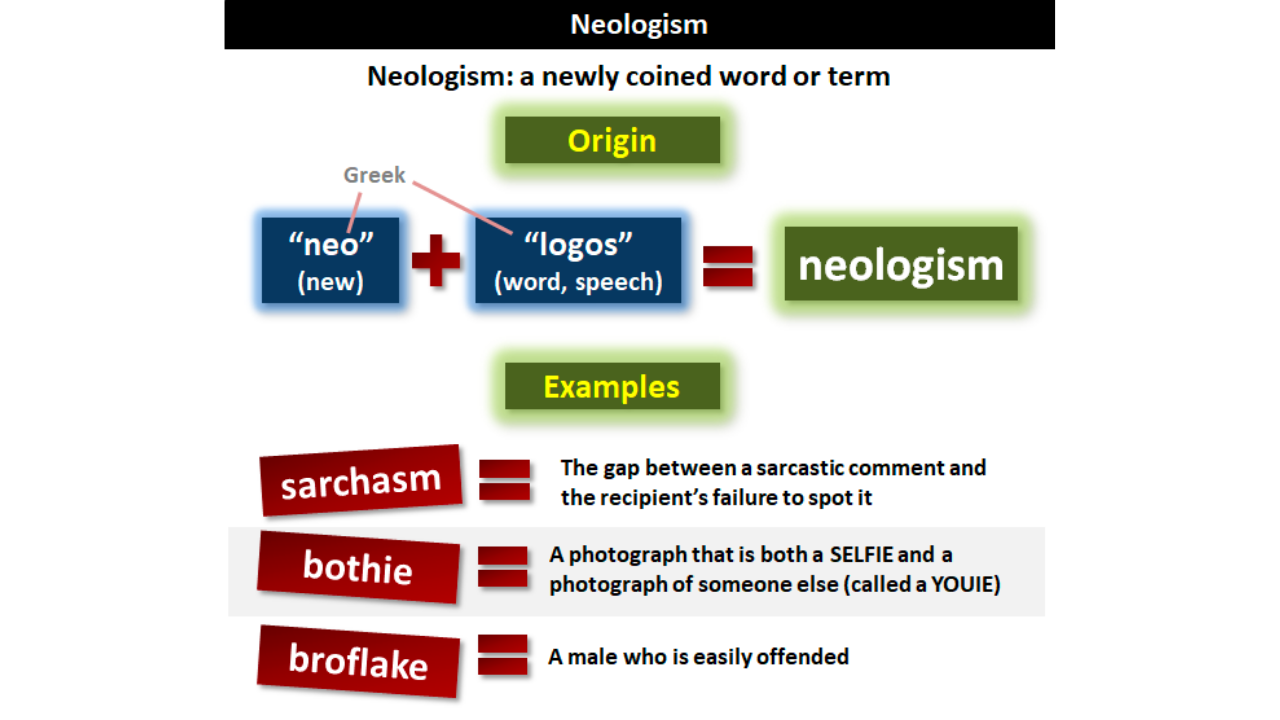
A great example is ‘webinar.’ This word comes from blending ‘web’ and ‘seminar’ to describe a seminar that takes place on the internet. This is a new concept that has never existed before the 21st century, so English speakers used what they already know to describe something new.
What Are The Main Types of Neologisms?
Neologisms come in different forms but they can be separated into three main types. We can borrow words from other languages, form new words by blending two together or add a prefix or a suffix to change the form of the existing word.
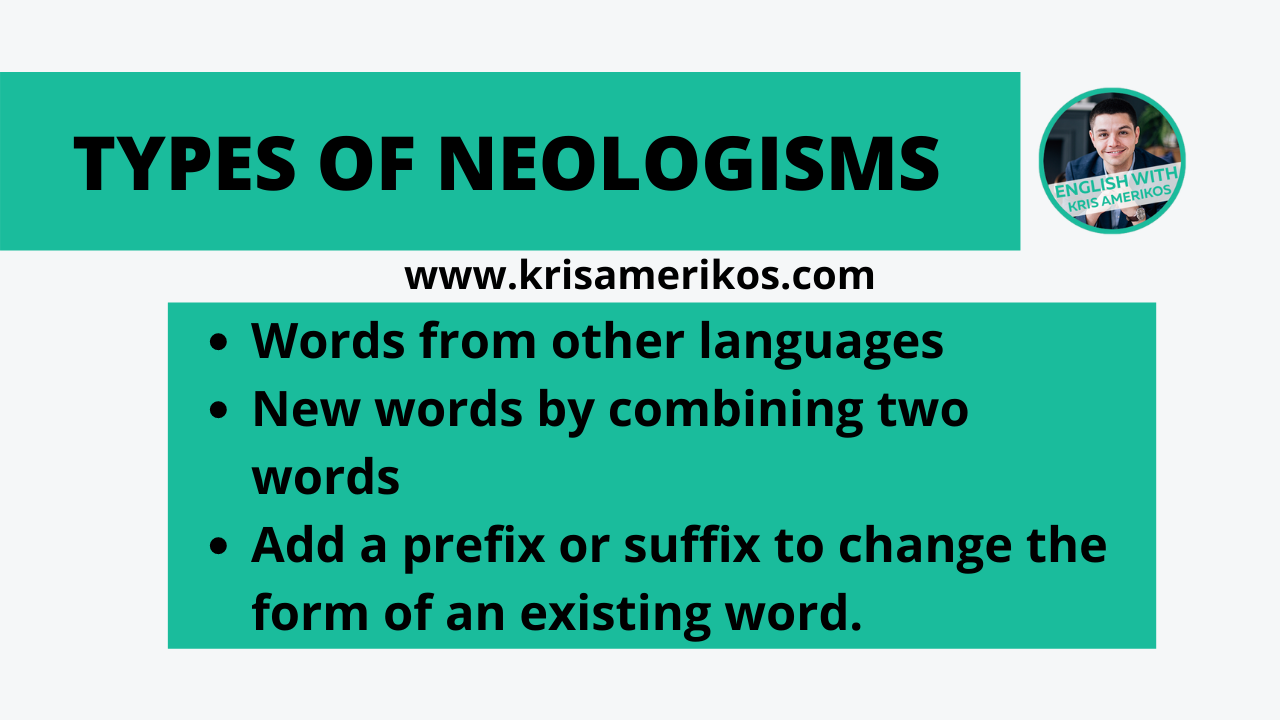
A new word may be adopted from another language. For example, the word ‘cafe’ is the word for ‘coffee’ in many different parts of the world. ‘Wanderlust’, ‘cartoon’, and ‘loot’ are other words that have been taken from other languages and are commonly used in English.
Common blended words to form new words include:
Breakfast + lunch = brunch
Hungry + angry = hangry
Chill + relax = chillax
Confused + puzzled = confuzzled
Smoke + fog = smog
And it’s common to add the suffix -er to a verb or a noun to describe a person in that area or profession.
For example:
Instagram = Instagrammar
Blog = Blogger
Influence = Influencer
Facebook = Facebooker
What Is An Example of Neologism?
‘Cyberspace’, ‘staycation’ and ‘skort’ are some of the common neologisms in English. They have been formed by combining two separate concepts. They explain an idea that didn’t have its own word. The concept of ‘cyberspace’ is relatively new so a new word needed to be created to describe it.
What is English Everyday
English Everyday is an English course with 24/7 live speaking lessons for English learners who want unlimited speaking practice with native speakers, professional teachers, and students from around the world.
You have live speaking lessons where you can join an unlimited amount of lessons every day. There's a lesson almost every hour and you can join all of them and also, you can review all record lessons. English Everyday contains a lot of conversation practice for each level of English (A2, B1-B2, C1), and also you have a calendar of scheduled lessons so you can see when lessons are and at what time you can join and start speaking.
In English Everyday program, you have 24/7 support and also you have student chat where you can speak with other students from all around the world. You can look at our feedback page so that you can know from which countries our students are. Before you join our program, we strongly recommend you sign up for our free seminar with Kris Amerikos, where you can learn:
- What goals you need to have to get better results
- How to become fluent in English very quickly
- What you need to do to have perfect pronunciation
- The 3 biggest mistakes you need to avoid
- Which free resources will help you learn English
- The best resource to use to improve your speaking
What is The Concept of Neologism?
Neologisms take a while to become integrated into the English language. They usually make their way into the dictionary when they are commonly used by native English speakers. A word is considered a neologism when it’s very obvious that it’s a word made up of other words or that one word has been changed to get it to fit a new form.
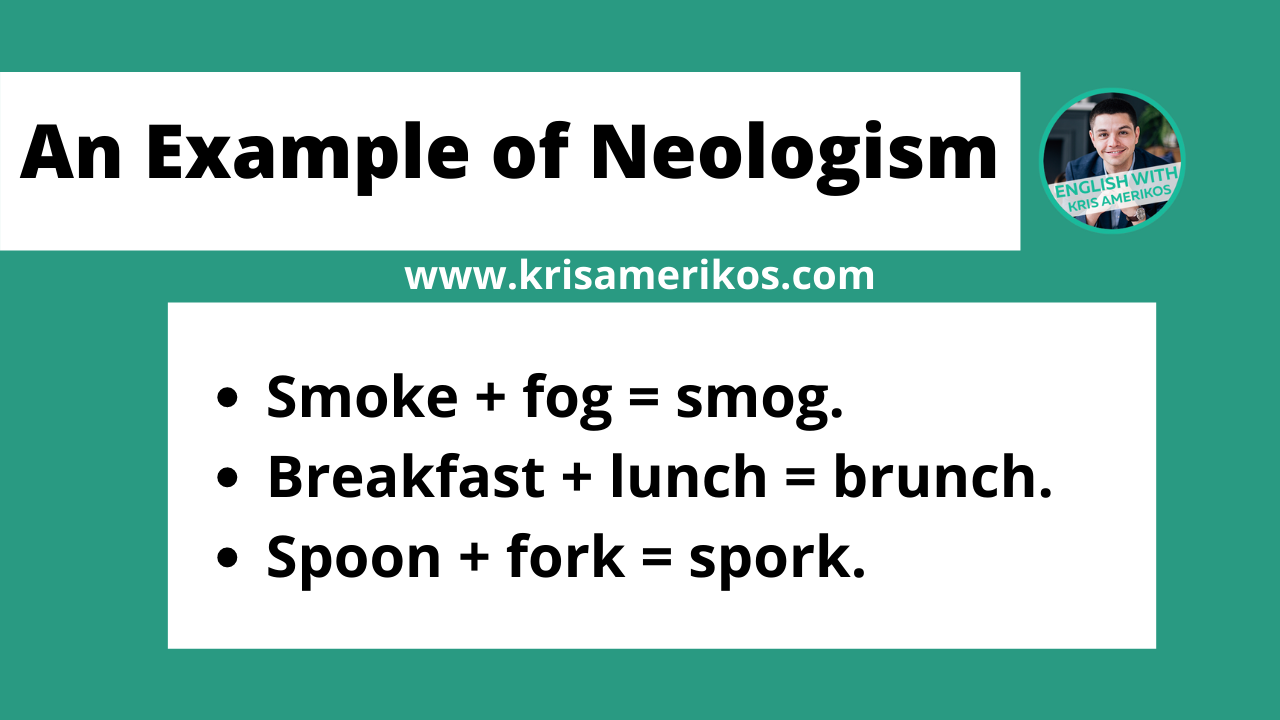
Neologisms can occur in passing too. A native English speaker could make up a new word on the spot to describe what’s on their mind. It’s not uncommon for native English speakers to create a word by blending two together or adding a prefix or a suffix in a once-off situation to describe something specific.
Examples of Neologism Words
Hiberdating = hibernating + dating
Nonversation = not a worthwhile conversation
Workaholic = work + alcoholic
Situationship = situation + relationship
Skort = skirt + short
Staycation = stay + vacation
Cyberspace = cyber + space
Selfie = self + suffix ie
(The suffix -ie usually makes a word into the informal and endearing form)
Sweetie = sweet + ie
Youie = you + selfie
Bothie = you + me selfie
Humanness = human + ness
Gonna
The spelling of ‘gonna’ is used in the place of ‘going to.’ This word is informal and is derived from the spoken pronunciation of ‘going to.’ English speakers usually don’t stress the /t/ sound and reduce it instead. This does depend on the country and regional accents too.
Gonna Grammar
There is a rule as to when ‘going to’ can be reduced to ‘gonna’ and when it has to stay ‘going to.’
We say ‘gonna’ when we want are talking about the future using ‘be going to + verb 1.’
The sentence structure is subject + be + going to + verb 1
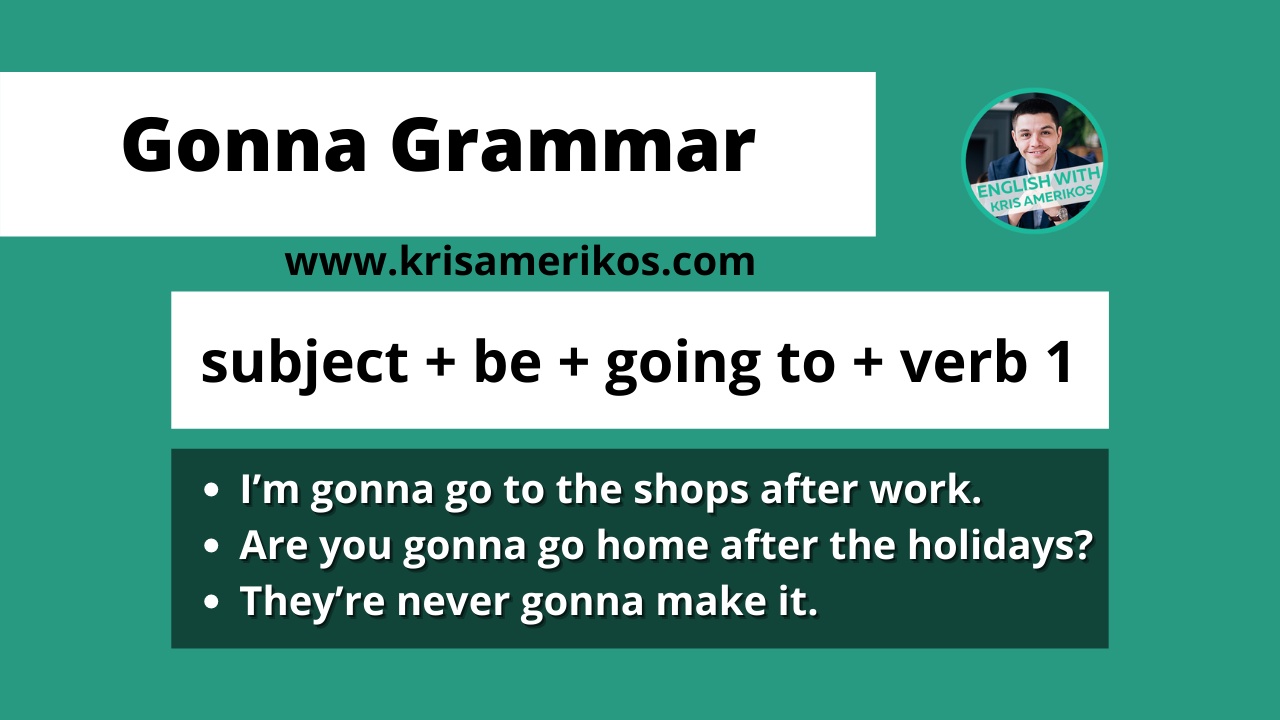
Examples:
I’m gonna go to the shops after work.
Are you gonna go home after the holidays?
They’re never gonna make it.
We CANNOT form ‘going to’ to ‘gonna’ in the present continuous tense.
This sentence structure is: subject + be + v -ing
Examples:
I’m going to the shops.
She’s going to the beach after work.
They’re going to their cousin’s house for Christmas this year.
How To Pronounce Gonna
‘Gonna’ has two different pronunciations. The differences simply depend on your accent.
In British English, the pronunciation is /ˈɡə.nə/
In American English, the pronunciation is /ˈɡɑː.nə/
It doesn’t matter which pronunciation you choose, just remember to stress the first syllable. Do not put too much emphasis on the /nə/ ending. The whole reason ‘going to’ becomes ‘gonna’ is because the second syllable is unstressed.
Gotta
‘Gotta’ is the informal version of ‘need to.’ The verb ‘get’ can almost always be replaced by a more expressive verb, however, ‘got to’ is more common in informal spoken English. If you want to sound like a native English speaker, try to say ‘gotta’ instead of ‘need to’ when in informal situations.
Gotta Grammar
‘Gotta’ is the spoken form of ‘got to.’ It is used as a filler verb to say that you need to do something.
The structure is subject + got to + verb 1.
‘Gotta’ is reduced in spoken English because it is not the main verb of the sentence. The speaker wants to get past ‘got to’ and get to the main verb to explain themselves.
Examples:
I gotta go.
You gotta finish your homework before you go out.
We gotta get to the shops before they close.
I gotta fetch my brother from school today.
How To Pronounce Gotta
Similarly to ‘gonna,’ ‘gotta’ has two pronunciations.
In British English, ‘gotta’ is pronounced /ˈɡɒt.ə/
In American English, ‘gotta’ is pronounced /ˈɡɑː.t̬ə/
The stressed syllable is the first syllable because the second syllable is the one that gets reduced. Reductions are never stressed in English.
Wanna
‘Wanna’ is the spoken and informal form of ‘want to.’ It is also not the main verb of the sentence, so it’s common for native English speakers to reduce ‘want to’ to ‘wanna’ when speaking.
Wanna Grammar
In English grammar, ‘wanna’ replaces ‘want to’ in informal spoken English and when writing informally.
The structure is subject + wanna + verb 1
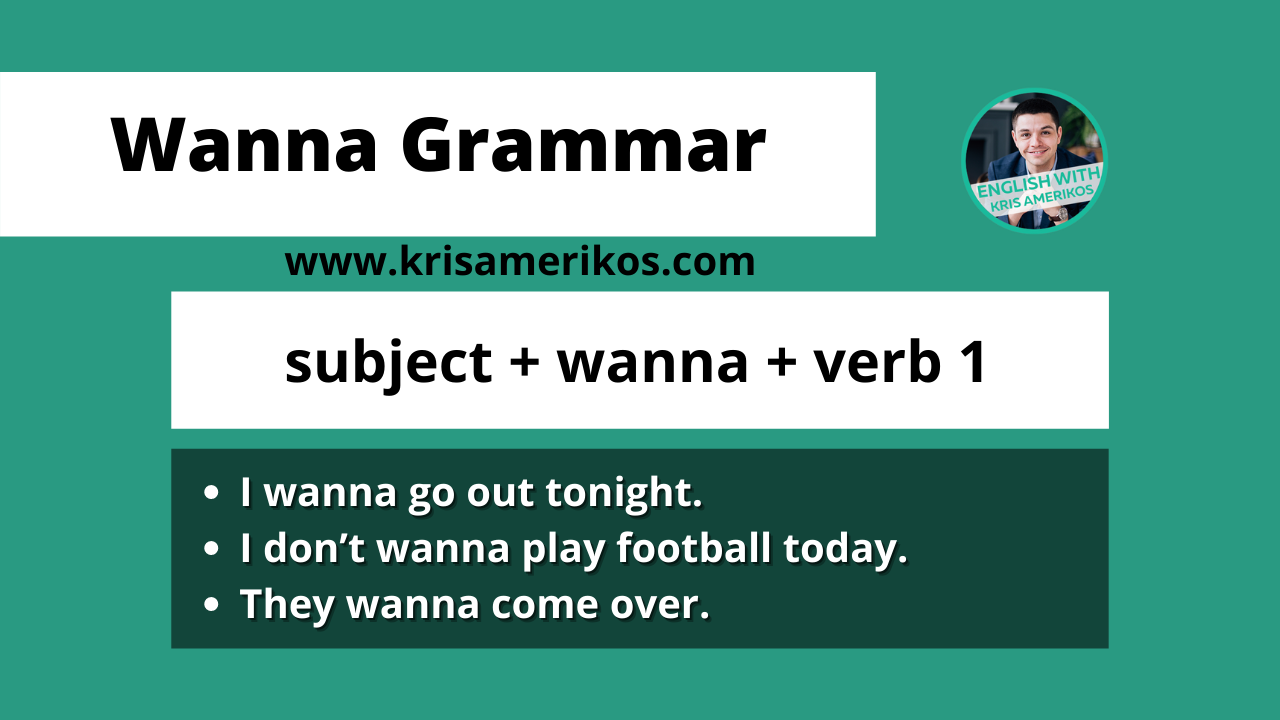
Examples:
I wanna go out tonight.
I don’t wanna play football today.
They wanna come over.
We wanna go to bed.
How To Pronounce Wanna
The pronunciation differs depending on whether an American or a British person is speaking.
In British English, ‘wanna’ is pronounced /ˈwɒn.ə/
In American English, ‘wanna’ is pronounced /ˈwɑː.nə/
The first syllable is stressed and the reduction is unstressed. The schwa /ə/ sound in English is never stressed, so it’s important that you don’t put too much emphasis on the second syllable.
If you can learn how to reduce the words ‘wanna’ ‘gonna’ and ‘gotta’ effectively in English then you will be able to speak English fluently and sound like a native English speaker.





